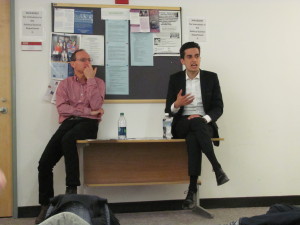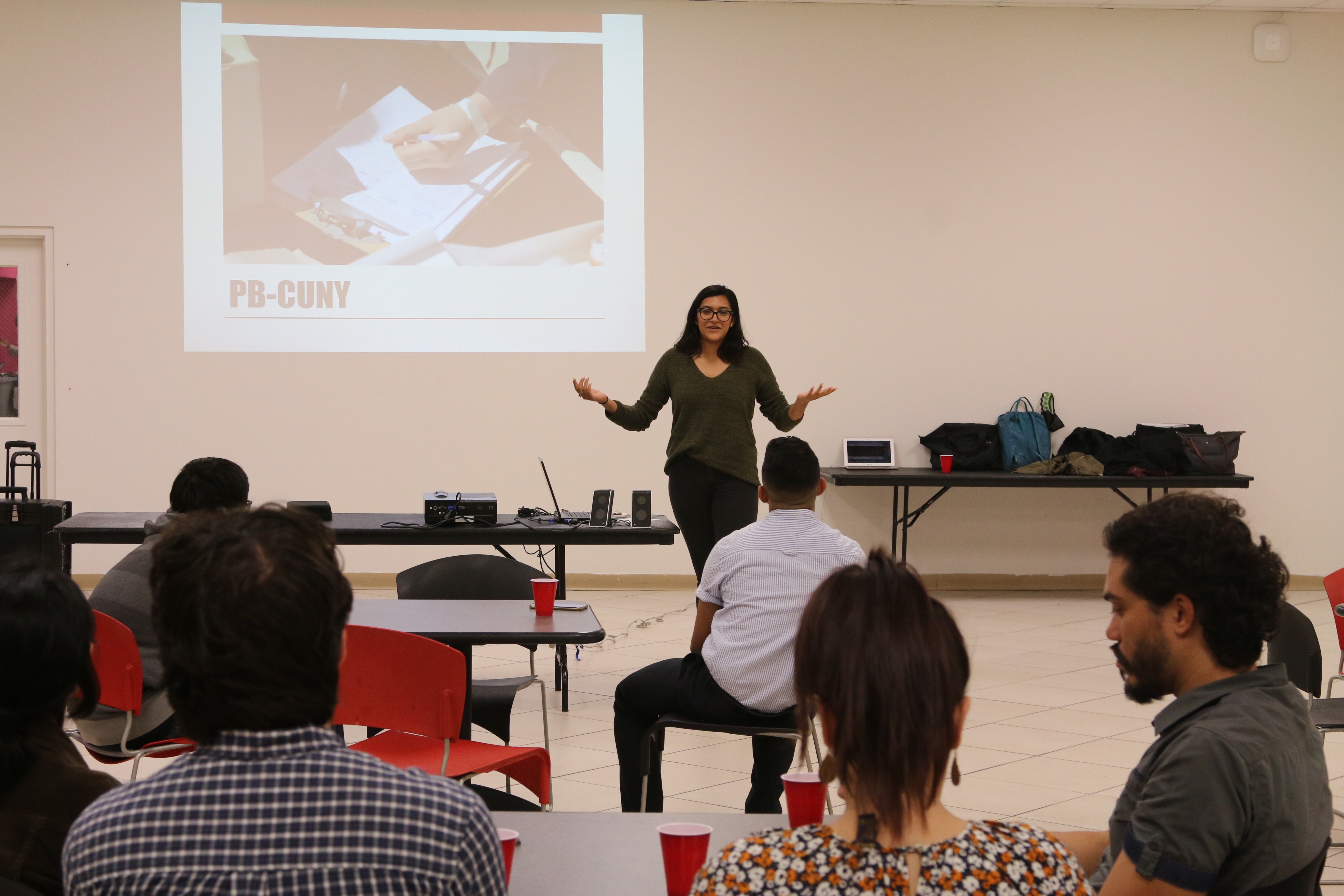
Christopher Michael (right) explained to the students how a worker cooperative functions and its differences with a traditional firm.
Worker cooperatives and participatory budgeting were major topics in the discussion hosted by Students on Democratic Alternatives on April 29 at the political science department.
Queens College Professor Ron Hayduk, of the political science department, and Christopher Michael, general counsel of the ICA Group, spoke about the importance of the topics and the sense of democracy each represents for citizens.
The ICA Group, founded in 1977, is an organization that promotes worker cooperatives and democracy in the workplace through business development and evaluating for firms.
Alexander Kolokotronis, student coordinator for New York City Network of Worker Cooperatives, spoke about SODA along with the importance of an event highlighting the values of participatory budgeting and worker co-ops.
“One thing we hope to get across with SODA is that we’re all political actors. It’s not just politicians and it’s not just people that talk. We all can have a say and power in pushing for initiatives that can benefit us and our community,” Kolokotronis said.
Hayduk began by describing what participatory budgeting is and its impact in New York City.
Participatory budgeting is a process where local community members vote on what ideas can be funded after brainstorming. It first began in 1989 where citizens in Porto Alegre, Brazil, decided to tackle issues in their community and soon spread throughout the world.
Hayduk emphasized the essential component of worker cooperatives and participatory budgeting — democracy.
“Democracy is such a wonderful word. It really captures people’s hearts and minds. It has meaning,” Hayduk said.
In New York City, as Hayduk noted, participatory budgeting quickly became popular with nearly half of New York City residents over 16 and eligible to participate in the process. City lawmakers were also on board. He also spoke on its appeal of a communal decision on local projects.
“What would you do with a million dollars? That’s not a bad pitch [for participatory budgeting],” Hayduk said.
Hayduk also spoke about problems associated with participatory budgeting in which certain areas were overrepresented and how ideas were selected.
Michael then spoke about worker cooperatives and how they are an alternative to the traditional hierarchical structure of a firm.
A worker cooperative is a firm where the workers are their own bosses and decide decisions through a democratic process.
Michael stressed how worker cooperative were still hierarchical to an extent, yet were better than the current way jobs where workers feel powerless in traditional capitalist firms.
“That feeling gets worse and worse when you get older,” Michael said.
The Mondragon Corporation was cited by Michael as one example of a successful worker cooperative. The federation, founded in 1956, operates from the Basque region in Spain and includes different firms from supermarkets to a university where workers are in worker co-ops.
Last year, the New York City Council allocated $1.2 million to develop worker cooperatives in the city in the fiscal year budget. Michael said, for the upcoming budget, even more money could be allocated.
“The city council could continue to give us money to build these companies and operate these companies,” Michael said.
Michael highlighted how “cooperative” was not a feel-good term and the importance of the word in describing collective efforts.
“It’s not a kindergarten word. It’s not that sharing and we’re in love with each and just hanging out,” Michael said. “It is how we’re working together.”














